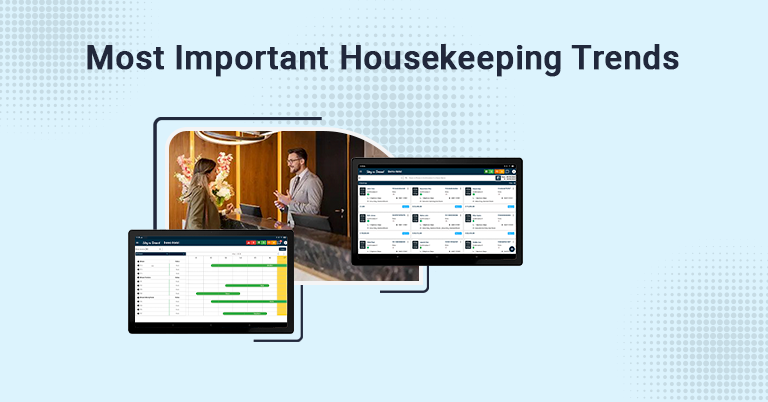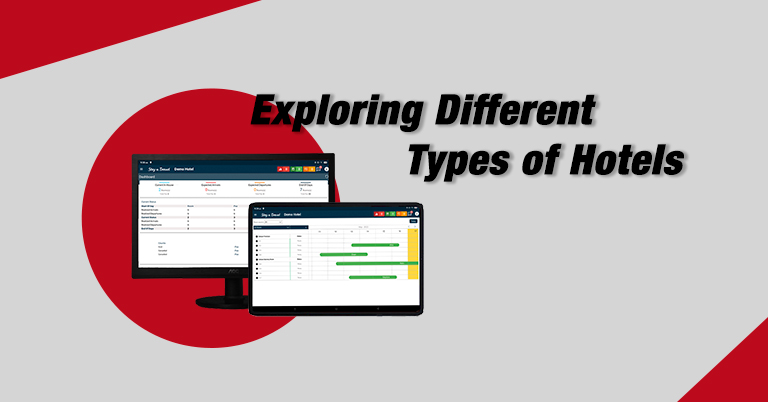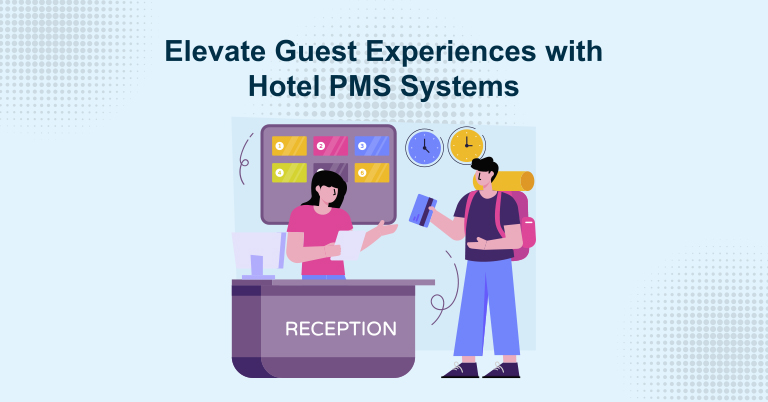In the ever-evolving world of hospitality, staying ahead of the curve is crucial for hoteliers to provide exceptional guest experiences while maintaining operational efficiency. Housekeeping, a fundamental aspect of hotel management, has witnessed significant changes in recent years. In this blog, we’ll explore the five most important housekeeping trends and how hotel management software, specifically hotel PMS (Property Management Software), can play a pivotal role in adapting to and capitalizing on these trends.
1. Enhanced Guest Expectations:
As travelers become more discerning, they expect spotless rooms and personalized services. Hotel PMS software assists in managing guest preferences and requirements efficiently. It can track special requests, such as room temperature or additional amenities, ensuring that housekeeping staff can cater to individual needs promptly.
2. Sustainability and Eco-Friendliness:
Sustainability is a growing concern among travelers. Many hotels are adopting eco-friendly practices, from reducing energy consumption to minimizing waste. Hotel management software can help by optimizing housekeeping schedules to reduce energy consumption in unoccupied rooms and by tracking and managing the usage of cleaning supplies and towels to minimize waste.
3. Contactless Operations:
The COVID-19 pandemic accelerated the adoption of contactless solutions. Hotel PMS software can facilitate contactless check-ins and check-outs, allowing guests to use their smartphones for room access. This reduces physical interaction and ensures a seamless and safe experience. Additionally, staff can receive real-time updates on room status, enabling them to prioritize cleaning and maintenance efficiently.
4. Data-Driven Housekeeping:
Data analytics has become instrumental in optimizing hotel operations. Hotel management software collects data on guest preferences, room occupancy, and housekeeping schedules. By analyzing this data, hotels can optimize housekeeping routes, allocate resources more effectively, and predict peak demand periods.
5. Streamlined Communication:
Effective communication between housekeeping, front desk, and maintenance teams is essential for smooth hotel operations. Hotel PMS software provides a centralized platform for communication and task assignment. Housekeeping staff can receive real-time updates on room status changes, maintenance requests, or special guest requirements, ensuring efficient coordination.
Now, let’s delve deeper into how Hotel PMS software can help address these trends:
Efficient Task Assignment:
Hotel management software streamlines housekeeping tasks by assigning rooms based on occupancy, guest preferences, and maintenance needs. This ensures that staff are allocated to where they are needed most, reducing wait times for guests and improving overall efficiency.
Resource Optimization:
With real-time data on room status and occupancy, hotel PMS software allows housekeeping managers to optimize staff schedules and allocate resources efficiently. This can lead to cost savings and improved service quality.
Personalized Guest Experiences:
Hotel PMS software stores guest profiles, including preferences and previous requests. This information can be used to create personalized experiences, such as setting room temperatures to the guest’s liking or providing their preferred amenities.
In conclusion, the evolving housekeeping trends in the hotel industry demand a more efficient and guest-centric approach to housekeeping management. Hotel PMS software is a powerful tool that can assist hoteliers in adapting to these trends. By leveraging data, optimizing resources, and enhancing communication, hotel management software empowers hotels to meet guest expectations, promote sustainability, and streamline housekeeping operations in an increasingly competitive market. Embracing these trends with the right technology can position hotels for success in the years to come.






